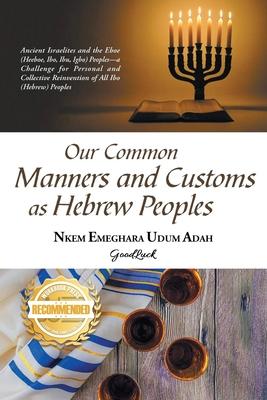The book agrees with the freed slave Dr Ola Udah Equiano who stated the possible close relationship of the manners and customs of his Ibo people with the ancient Israelites as represented in the book of Leviticus of the Hebrew Bible.
The product of a research that begun in 1983 this book explores the similarities in vocabulary, ritual practice, beliefs, personal attributes, and common aspirations that are common to the ancient Israelites and the Ebo(e) ( variously rendered as Heebo(e), Ibu, Ibo, Igbo) peoples. The author uses Ibo to cover the part of Nigeria the Europeans called ''Ibo country.'' On the date of writing, this area covers what used to be the former eastern region, Delta and part of Kogi and Benue states wherever the Ibos are found in Nigeria and elsewhere. A limitation of this book is the difficulty in identifying the full list of countries in Africa where Ibos are found today as they spread as far as to Equatorial Guinea, Gabon, and elsewhere.
The book describes the various types of Jews in the world but suggests to the Ibo to avoid aligning with any. Rather to keep to their own identity especially as they seem to be the most original today.
The book also calls all children of Jacob (Israel) all over the world to reinvent themselves as one people and cooperate with one another for collective survival in a hostile world. It opines that the true people of God are those people who truly appreciate the task Abraham's blessing confers on them as a people and would operate cooperatively to accomplish this task in a hostile world. It then calls on the Christendom to embrace true Christianity centred on Yeshua and as interpreted by Yeshua and his Apostles who handled Christianity purely from the Jewish view of interpreting scripture.
